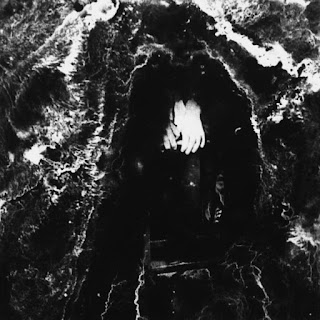Saturday, 21 October 2017
Saturday, 7 October 2017
Friday, 8 September 2017
Wednesday, 30 August 2017
Friday, 25 August 2017
Friday, 4 August 2017
'The photographic industry - its exhibitions, galleries,
publications and auctions - employs thousands of women, but champions
mostly men. To begin to redress the balance, here is a timely
presentation of the work of over 30 female photographers working today.
This book is predominantly a celebration of some of the most
inquisitive, intelligent and daring photography being created now. The
stories the photographers tell are the most pressing social, political
and personal issues seen through the female lens (...)
There is a recurring theme throughout the book that
serves to unite these extraordinary women and their work: the
exploration of marginalized individuals and under-discussed subjects,
seen by fresh eyes.
A vivid showcase of work by more than thirty of the
world’s leading contemporary female documentary photographers,
presenting a cross-section of photographic disciplines and geographies;
Ying Ang, Evgenia Arbugaeva, Poulomi Basu, Behnaz Babazadeh, Endia Beal,
Haley Morris-Caferio, Juno Calypso, Natasha Caruana, Scarlett Coten,
Bieke Depoorter, Maria Gruzdeva, Alma Haser, Mayumi Hosokura, Corinna
Kern, Katrin Koenning, Anastasia Taylor-Lind, Diana Markosian, Diana
Matar, Chloe Dewe Mathews, Zanele Mulholi, Aida Muluneh, Anja Niemi,
Regine Petersen, Jill Quigley, Magda Rakita, Lua Ribeira, Mariela
Sancari, Laura el-Tantawy, Newsha Tavakolian, Sanne De Wilde, Cemre
Yesil, Yunya Yin and Chen Zhe.'
Tuesday, 4 July 2017
Tuesday, 27 June 2017
Monday, 26 June 2017
Tuesday, 20 June 2017
Monday, 5 June 2017
Saturday, 3 June 2017
Notes to a friend, January '17.
Dear G., hope you're well. Read your first two correspondences. Very interesting! They
made me think further around this idea of an emotionality of images,
something on my mind a lot in general. I was waiting for this to
make an appearance in due course, particularly since you were navigating
'ertraeumte' or 'traumatisierte' images. Does something become bare
(i.e. material) only when it is found outside of oneself and when albeit
being political it holds no personal memory to its 'new author'? Then
what is this all when one operates on sick images found inside oneself
(from within the family, let's say), and how does the material agency
shift through imbued memory / the experienced? Are the pictures suddenly
embedded with another layer, something that emerges in between the
photographic and the photographed, the found and the rescued, the lost
and the remembered? This may hint at a materiality that is also
emotionality because of the personal.
My father used to photograph; years ago I rescued his archives. He no longer wanted them. He lost his sense of smell as a child. With this, it seems, he also lost the memory of 'paster 'things. We started a dialogue when the archives changed hands. His picture-making was not to help him remember something once it had passed, but it was perhaps truly to witness the present; to be (making images as being-in-the-world). I would scan an image and send it to him; in return he'd tell me something about it if he could. Mostly there was only the absence of memory, so we would make new meaning for the picture in question. His navigating the lack of memory would imply a sort of radical rationality - he'd study the image, and by assessing the size of the river in the background, he would 'locate' it (the image). This allowed him to place it within a certain time-frame, at least, by logic.
Last year or the year before, he sent me a batch he had newly 'discovered'. The negatives show signs of water-damage (some severe). Are these photographs doubly-sick, by lack of image and by lack of memory? Or doubly-material? Did he author them (perhaps his partner did), and does this matter? In his mind they're his, connected to nowhere. Maybe by losing their represented twice, they now belong only in a more general way. To me, their emotionality has intensified by my agony of a 'close distance', if you will. Their watercolour-esque surfaces, chaotic and deep, are at once (a kind of) memory turned material and material turned forgetting.
My father used to photograph; years ago I rescued his archives. He no longer wanted them. He lost his sense of smell as a child. With this, it seems, he also lost the memory of 'paster 'things. We started a dialogue when the archives changed hands. His picture-making was not to help him remember something once it had passed, but it was perhaps truly to witness the present; to be (making images as being-in-the-world). I would scan an image and send it to him; in return he'd tell me something about it if he could. Mostly there was only the absence of memory, so we would make new meaning for the picture in question. His navigating the lack of memory would imply a sort of radical rationality - he'd study the image, and by assessing the size of the river in the background, he would 'locate' it (the image). This allowed him to place it within a certain time-frame, at least, by logic.
Last year or the year before, he sent me a batch he had newly 'discovered'. The negatives show signs of water-damage (some severe). Are these photographs doubly-sick, by lack of image and by lack of memory? Or doubly-material? Did he author them (perhaps his partner did), and does this matter? In his mind they're his, connected to nowhere. Maybe by losing their represented twice, they now belong only in a more general way. To me, their emotionality has intensified by my agony of a 'close distance', if you will. Their watercolour-esque surfaces, chaotic and deep, are at once (a kind of) memory turned material and material turned forgetting.
Wednesday, 10 May 2017
Subscribe to:
Posts (Atom)



























